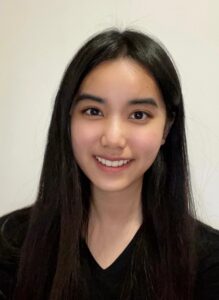Lifestyle & Culture Science & Health
A safe space for students with autism
 By Haaniyah Faisal
By Haaniyah Faisal
Fostering a safe space for autistic students. Helping patients find their voice. Encouraging them to accept and be confident in their autistic identity. These are some of the responsibilities of Yvetta Ma, an intern for the NYU Langone Health Hospital Center passionate about providing a space for autistic teen girls to feel heard and nurtured.
The hospital provides therapy and treatment services for students and adults with diverse health needs. Yvette chose to work in the Autism Spectrum Disorder division.
She made this decision after taking a Child and Adolescent Psychiatry class at New York University. She studied the clinical evaluations of a teenage girl who was diagnosed with autism, obsessive compulsive order (OCD), depression, and eating disorders. Apart from the clinical work, she and her classmates noticed that autistic traits appear differently between males and females. The class activities were an eye-opener for her.
These experiences ultimately inspired her to help people within the autistic spectrum. “I just wanted to find a way to help autistic girls and improve their current situation.” She decided to specifically work with autistic girls as she felt that they were underserved when compared to autistic boys. According to the Centers for Disease Control and Prevention(CDC), girls are four times less likely than boys to receive an autistic diagnosis. Girls are also on average diagnosed a year later than boys, a discrepancy revealed by a study conducted by Drexel University.
Yvetta Ma also noted that young autistic girls are more susceptible to bullying in school. This factor further drove her to help this group of people.
Yvetta has been interning at the Langone Hospital since the beginning of this year but only started working with autistic patients from May.
She has spent much of her time conducting extensive evidence-based research on patients’ autistic disorders to come up with individualized curricula and brainstorm activities for each of them. “I sometimes read more than 20,000 papers for a single project.” After the curricula are finalized, Yvetta and her team work to implement them accurately and effectively. She and her colleagues also conduct book reviews to create the best treatment plans for their patients.
One of the books they reviewed was Sincerely, Your Autistic Child which consisted of a collection of letters and essays from those who fall within the autistic spectrum. The written works contained anecdotal stories that shed light to the needs and experiences of Autistic women. It also discussed what they think parents of autistic children should be aware of. “We use the lived experiences shared in this book to guide our development of group curriculum and activities to better support females on the autism spectrum, especially in terms of navigating relationships with parents and friends.”
Yvetta says that the most rewarding part of her work as an ASD Service Summer for the NYU Langone Hospital is seeing patients make progress and build confidence under her guidance. “Working with different patients is definitely fulfilling. You not only see the children themselves communicate effectively with us, but also communicate with their families, which is a huge step for them.”
She found her interactions and experience with her patient Mia(an alias provided to protect confidentiality requirements) in particular to give her a lot of contentment and satisfaction. Mia fell under the comorbid autistic spectrum; she had autism and a social anxiety disorder. These struggles have made it hard for her to comprehend social cues and interact with others.
“During our sessions, Mia was initially quite shy and hesitant to participate in group activities.” Yvette says.” “However, as we progressed through the social skills training, she began to open up more.”
One session in particular stood out to Yvette. Mia talked to her about a time when she felt overwhelmed during a group assignment at school. She described feeling out of place and unable to contribute in a way that felt meaningful.
Mia said, “I try so hard to be part of the group, but it feels like I’m always on the outside looking in.” This remark according to Yvette “highlighted the deep sense of exclusion and frustration many neurodivergent adolescents experience when struggling with their mental health disorders.”
Yvette helped Mia to develop more effective communication strategies through role-playing activities and practice scenarios. Yvette found it rewarding to see her gradually become more comfortable and engaged during group activities. “Witnessing Mia’s progress and her improved ability to connect with her peers was a powerful reminder of the positive impact that individualized therapy and social support can have on an individual’s daily life.”
Working with autistic children has changed Yvette as a person. “After working in those settings, I became more emotionally engaging, more empathetic, and can really just think from other people’s perspectives.”
Yvette’s relentless efforts have allowed her to make a long lasting impact within a traditionally marginalized community. Her work has given numerous young girls the opportunity to be confident in their identity and shine in the future.

